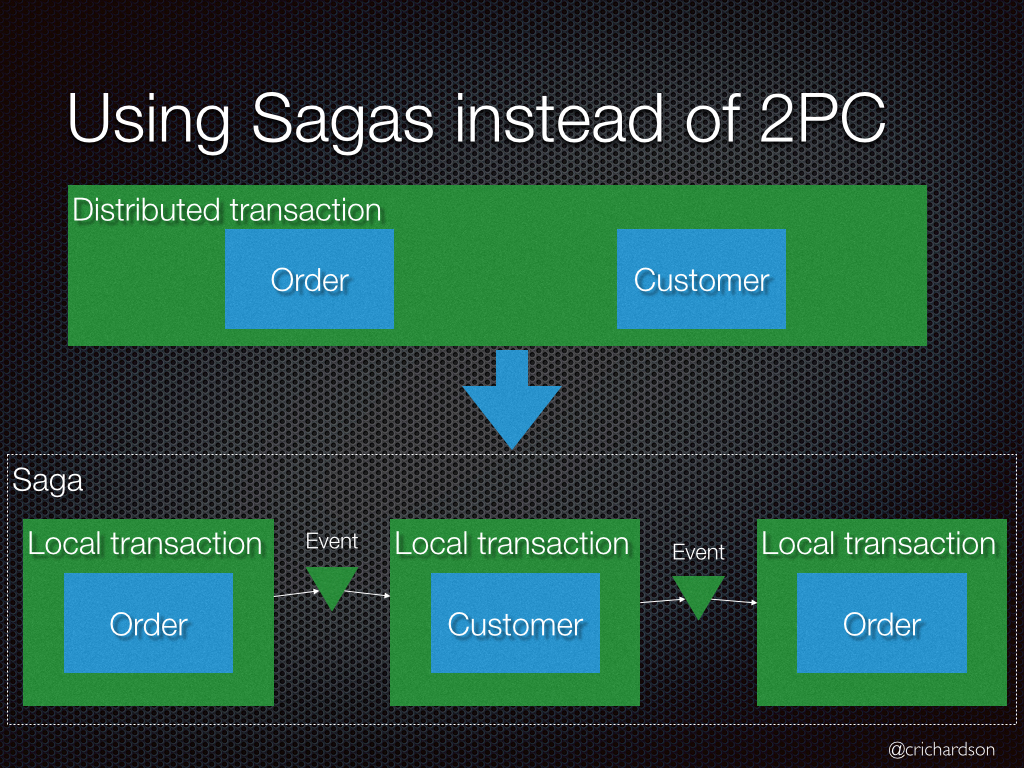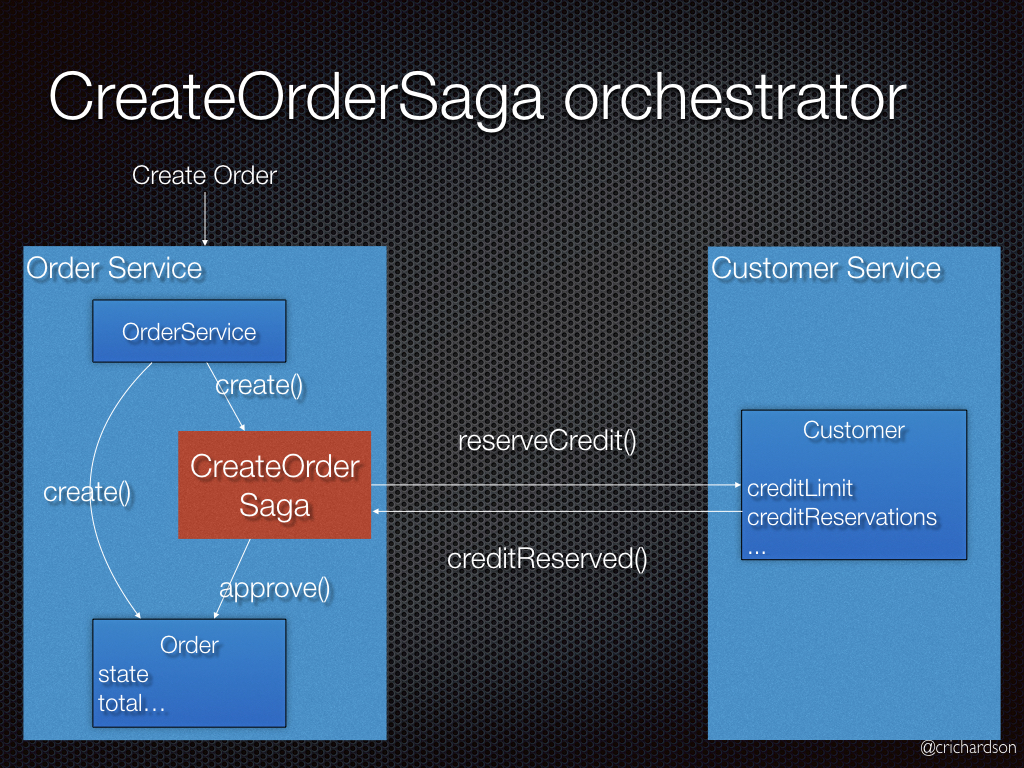Pattern: Saga
Hi, Habr! I present to your attention the translation of the article "Pattern: Saga" by Chris Richardson.
Situation
There is an application to which the Database per Service pattern was applied. Now each application service has its own database. Some business transactions cover several services at once, so a mechanism is needed to ensure consistency of data between these services.
For example: let's imagine that we are developing an online store where the client has a credit limit. The application must ensure that the new order does not exceed the customer's credit limit. Since Orders and Clients are different databases, the application cannot use local ACID transactions.
Problem
How to ensure data consistency between services?
Decision
It is necessary to implement each business transaction that covers several services as a saga.
The saga is a collection of local transactions. Each local transaction updates the database and publishes a message or event, initiating the next local transaction in the saga. If a transaction fails, for example, because of a violation of business rules, then the saga launches offsetting transactions that roll back the changes made by previous local transactions.

There are two ways to coordinate sagas:
- Choreography (Choreography) - each transaction publishes events that trigger transactions in other services.
- Orchestration (Orchestration) - the orchestrator tells participants what transactions should be started.
Example: a saga based on choreography

In an online store using a saga based on choreography, creating an order will include the following steps:
Order Service ( )creates anOrder ()in the status of pending (pending) and publishes an eventOrderCreated ()Customer Service ( )receives the event and attempts to reserve a loan for the order. After that, it publishes one of two events:CreditReserved ()orCreditLimitExceeded ()Order Service ( )receives the event and changes the status of the order to approved ( canceled ) or canceled.
Example: Orchestrated Saga

In an online store using an orchestration-based saga, order creation will include the following steps:
Order Service ( )creates anOrder ()in pending (pending) status and createsCreateOrderSaga ()CreateOrderSaga ()sends theReserveCredit ()teamReserveCredit ()to theCustomer Service ( )Customer Service ( )tries to reserve a loan for the order and sends back an answer.CreateOrderSaga ()receives a response and sends anApproveOrder ()Order Service ( )ApproveOrder ()orRejectOrder ()Order Service ( )RejectOrder ()command in theOrder Service ( )Order Service ( )changes the order status to approved (confirmed) or canceled.
The saga has the following advantages
- Allows an application to maintain data consistency across services without using distributed transactions.
The saga has the following disadvantages
- The programming model becomes more complex. For example, developers must design offsetting transactions that undo changes made earlier in the saga.
')
Source: https://habr.com/ru/post/427705/
All Articles